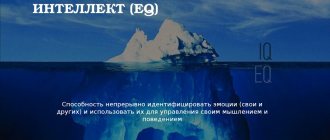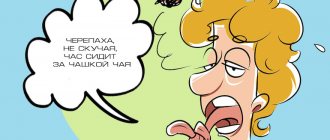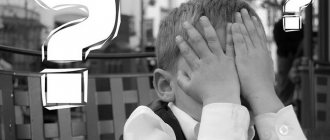Many people believe that intelligence only includes erudition and logical thinking. In fact, this concept is more multifaceted.
Intelligence consists of different components and is closely related to cognitive abilities: perception, attention, thinking and speech. It can be spatial, emotional, strategic... And these are just some of its types.
Learning, adaptation, understanding of various processes, application of experience, personal success - all this is impossible without developed intelligence.
At the same time, intelligence is not given to us at birth, it must be constantly developed, and our selection of books will help you with this!
You will learn to go beyond the ordinary and have the opportunity to change your thinking, and with it your life.
How many self-development books are in your library?
Start developing a good habit for yourself - reading one paper book on self-development at least a month. I think that anyone can spend 200-500 rubles to buy a book in paper version, regardless of their personal financial budget. But if a toad is strangling you here, then at least sign up for the library. At worst, read it electronically.
In general, in a month I read one in paper form and three or four books in electronic form. As a result, an average of 4 books per month, and about 50 per year. And so, what do you think, 50 books for self-development can change your worldview, your habits, your life? Definitely yes. In a year of reading, an unreal transformation of your loved one will occur.
If you look at rich people, they always have a large library of interesting books. But poor people would rather watch TV on the couch in the evening than read a couple more interesting pages. That's why rich people have big libraries, and poor people have wide TVs. Since I have just begun my conscious self-development, I, of course, still have a small library, but I already have about 30 books for self-development.
I have the best ones, the ones that really hooked me, inspired me, and taught me something. If I read an interesting book in electronic form, then I go and take it in paper form. When I have time, I re-read them. And every time through the lines I learn something new that I didn’t notice before or didn’t try to understand.
Seven short lessons in physics, Carlo Rovelli
Carlo Rovelli is an Italian physicist who made major scientific contributions to the theory of quantum gravity.
He is also a brilliant popularizer. Like no one else, Rovelli knows how to explain complex things in simple language: what is time, space, quanta, why does the scientific world need a hadron collider?
Immediately after its release in Italy, this book broke sales records - in the author’s homeland it sold even better than the giant among bestsellers “50 Shades of Gray”!
So if you want to finally understand for yourself what modern physics is, and be able to briefly explain the main provisions of quantum theory in a smart company, the book is definitely for you.
What is this book about?
Rovelli's popular science work touches not only on scientific issues, but also easily and in simple language introduces the reader to the biographies of scientists and the circumstances of the emergence of the most popular physical hypotheses.
How did Einstein create his theory of relativity? How did quantum mechanics appear and which scientist is behind it? How is particle physics different from just physics?
There are quite accessible answers to all these questions in the book. But that’s not even the main thing.
Rovelli's work is intended primarily for those readers who do not have the slightest idea about physical science.
Like all the most popular books, it's like a first-grade textbook, but written for adults who can already read a little.
At the same time, the bottom line is that after reading this work you can feel several times smarter!
FINANCE
Eker Harv
Think like a millionaire
Donald Trump
Think big and don't slow down
Napoleon Hill
Think and get rich
Saidmurod Dovlatov
Thinking strategy of rich and poor people
Robert Kiyosaki
Cash Flow Quadrant
Bodo Schaefer
The path to financial independence
Robert G. Allen
Multiple sources of income
Vladimir Savenuk
How to create a personal financial plan and how to implement it
Robert Kiyosaki
Rich dad, poor dad
Carl Richards
Let's talk about your income and expenses
George Clason
The richest man in Babylon
Think slow...decide fast, Daniel Kahneman
Psychologist Daniel Kahneman is a global figure. He developed one of the psychological economic theories and received the Nobel Prize.
It is he who, throughout his professional career, tries to explain the well-known phenomenon: why do people spend money irrationally and act irrationally in general?
Many economists and managers of transnational corporations build their models on the basis of Kahneman’s works.
He could have become the richest man in the world and the coolest businessman in the history of mankind, but he devoted himself exclusively to science, writing and educational activities.
What is this book about?
"Think Slow... Decide Fast" is a book on cognitive psychology. In general, it is surprising how a work written far from being for a wide audience and in far from the most accessible language turned out to be a world bestseller.
There are a lot of diagrams, tables, diagrams and tedious columns with statistical data. At the same time, for some reason it is impossible to tear yourself away, as soon as you begin to even roughly understand what is being said.
The book describes a model of human decision making - as Kahneman understands it.
The process of thinking, choosing and making volitional decisions is described to the smallest neurophysiological detail.
Sapiens: A Brief History of Humankind, Yuval Noah Harari
The personality of the author, Israeli professor of historical sciences Harari, deserves special attention.
The 42-year-old Israeli citizen began his career as a military man, but became interested in medieval history and became one of the most popular authors of global historical works.
At the same time, he is a convinced vegan, an active advocate of animal rights, and gay. He is interested in Eastern culture, regularly practices Vipassana, asceticism and avoids social networks.
It is very interesting to look at the history of planet Earth through the prism of such a person’s worldview!
His A Brief History of Humankind has been translated into more than 45 languages. Of course, this is a book of planetary scale and incredible scope of thought.
What is this book about?
Harari invites us to look back into history hundreds of thousands of years ago - into the Stone Age - and try to answer the global question: why did Homo Sapiens begin to dominate all living beings?
The book runs through the idea of human violence against animals. At the same time, according to Harari, it is a reasonable person who has a quality that no other living creature has: the ability to collaborate and cooperate.
Questions of ethics, an excursion into evolution, scientific data, a short course in cognitive psychology - even the most discerning reader will find something in this book that touches his mind and heart.
"Steal Like an Artist: A Creative Diary." Austin Kleon
Book on Ozon.ru
This is a special notebook that will teach you to think broadly and look for ideas. The main thing is to consciously carry out tasks and exercises: draw illustrations of your day, make lists of the things you fear most, and choose words from a story so that you end up with a poem. At the end of the diary there is a special idea box - a small envelope in which you can store notes about new projects, postcards and photographs.
Austin Kleon advises to always carry a diary with you and complete at least one task a day until all the pages are filled. The diary will be enough for several months of daily work - and this is a full-fledged course on the development of creative thinking.
SPIRITUAL GROWTH
Osho
Mindfulness
Michael Newton
Journey of the Soul
Eckhart Tolle
The power of now
Neil Donald Walsh
Conversations with God
Rhonda Byrne
Magic
Deepak Chopra
7 Spiritual Laws of Success
Tamara Schmidt
Kryon. What is the meaning of your life
Yongey Rinpoche
Joyful Wisdom
Sal Rachel
Multidimensional man
Vadim Zeland
Reality Transurfing
RELATIONSHIP
John Gray
Men are from Mars, women are from Venus
Mikhail Litvak
Man and woman
Gary Chapman
5 love languages
Isaac Adizes
Union of Dissimilars
John Gottman
7 principles for a happy marriage
Dean Delis, Cassandra Phillips
The paradox of passion
Robins Baker
Bed wars
Alexander Nosov
love addiction
Douglas Abrams, John Gottman
Woman. Guide for men
Steve Harvey
Act like a woman, think like a man
"The Subtle Art of Not Giving a F*ck" - Mark Manson
The book by American entrepreneur and writer Mark Manson became a bestseller due to the vitality of the questions it raises. Namely, about the imposition by modern culture of unrealistic ideals and expectations: high grades, only perfect appearance, cutting-edge gadgets, cool work and bright photos on social networks.
Due to the tendency and desire for impossible perfection, people experience stress and pressure. The book is intended for those who want to learn to constructively perceive the world around them, and also highlights the meaning of negative experiences. After all, it is important to learn to soberly assess what is worth worrying about and what is better not to pay attention to.
According to the author, the law of reverse effort has its name for a reason: if you stop wanting something, everything starts to happen the other way around. If chasing the positive is negative, then chasing the negative creates positivity. The pain you experience in the gym creates better health and fills you with energy. Failure in business helps you better understand what it takes to succeed. Frankly admitting your weaknesses paradoxically makes you more confident and pleasant to people.
“Write, shorten” - Lyudmila Sarychev, Maxim Ilyakhov
The book will be a good helper for those who want to learn how to express thoughts briefly, clearly and convincingly, without linguistic garbage, falsehood and cliches. It will be useful for everyone who works with text: copywriters, authors, editors, designers, programmers, managers, entrepreneurs and executives.
The authors show with examples what is good and what is not in informational, advertising, journalistic and journalistic texts. By following the recommendations outlined in the book, you will learn to write clearly and engagingly.
Even if your profession is not related to the processing and dissemination of information, but you want to learn how to competently organize and express your thoughts, then “Write, Reduce” will be a good impetus.
SELF-realization
Self-realization is the realization of your creative potential. This is done through understanding your purpose. To do this, there must be a mission, goal and project that will be a continuation of your potential. Realizing what you have planned gives you meaning in this life. You just learn to be a creator with a capital C.
This is the so-called point B.
Alexander Nosov
Self-realization. How to find your calling
Ken Robinson
Vocation
Alexander Rey
Purpose
Brian McAllister
Road map
El Luna
Between need and want
Danielle Laporte
Light a fire
Maxim Matveev
An echo of yourself. Vocation as inevitability
Michael Ray
Highest goal
Barbara Sher
What to dream about?
Tina Seeling
Make yourself
See also:
50 best films for self-development from your personal collection
25 useful sites for self-development and self-education
HEALTH
Shawn Stevenson
Healthy sleep
Douglas Graham
Diet 80-10-10
Vadim Zeland
Live kitchen
Paul Bragg
The Miracle of Fasting
Fireidon Batmanghelidj
Water for health
Deepak Chopra
Yoga. 7 spiritual laws. How to Heal Your Body, Mind and Spirit
Abigail Ellsworth
Visual yoga. 50 basic asanas
Enien, Choying Zangmo Alison
Tibetan breathing yoga. Cleansing and increasing vital energy levels
Dalai Lama
How to meditate
Valery Sinelnikov
Love your illness
Dmitry Chernyshev “How people think”
Most people have chosen to live on autopilot, deciding not to bother themselves with unnecessary thoughts. We see the result every day: some individuals never tire of generating original ideas, while others have come to terms with their own dullness. Dmitry Chernyshev encourages you to break out of the trance and move on to a conscious life - turn on your brain, start setting tasks for yourself and solving them. To understand the peculiarities of modern man’s thinking, read the book “How People Think.”
You will find confirmation of the “terrible guesses”: they leave us no room for imagination and no reason for reflection. Vivid pictures fill the consciousness from TV screens, Internet games replace life experiences with special effects. We may not have completely lost the ability to think independently, but preserving individuality requires conscious action.
The king of all diseases. Biography of cancer. Siddhartha Mukherjee
For this book, Indian oncologist Mukherjee received the Pulitzer Prize, the highest award in the field of journalism.
In addition, “The Biography of Cancer” was included in all imaginable and inconceivable lists and ratings: the best books of the top 10 of the decade, the twentieth anniversary, and even the top 100 non-fiction works since 1923, according to Time magazine
.
There was a good story behind the creation of this book. As the author himself said, one patient told him, his doctor, that he was ready to continue the fight against oncology, but it was important for him to understand who his enemy was.
And oncologist Mukherjee wrote a book about the biography of the most serious illness of all times.
What is this book about?
The work has two storylines: the first is the story of cancer (in one translation - “emperor of illnesses”), the second is a narration from the perspective of the doctor himself.
The oncologist organically weaves true stories of patients and memories of doctors into the context of the biography of cancer.
The book is of interest not only to a wide range of readers, but also to specialists.
The history of humanity's struggle against cancer is described here in detail, starting from lead tinctures and ending with the latest achievements in the field of chemotherapy and radiotherapy.
"The Art of War" - Sun Tzu
“He who gets a hundred victories in a hundred fights is not a hero; heroism is to conquer an antagonistic army without fighting at all” - a quote from a philosophically strategic work of an ancient Chinese military leader. The book is devoted to politics and military strategy. Although the concept of war in the treatise is quite allegorical.
How can this knowledge be useful in everyday life if you do not plan to conquer the world in the near future? They can be easily applied in business. Typical quote: “A leader is defined by his character, not his position.”
The book is not one of the simple ones, but this is exactly what will allow you to look at the world from a different angle and expand your horizons.
“The Living and the Dead Word” – Nora Gal
The book by translator Nora Gal was written more than 40 years ago, but over the past ten years it has been republished just a dozen times. It has not become outdated at all and even gained a new breath with the advent of the Internet, because all the principles of the “living word” have become relevant again.
To become a good translator, it is not enough to know a foreign language well; you also need to have a brilliant sense of all the subtleties of your native one. Nora Gal is an excellent translator, so all her advice on enriching your own speech and getting rid of verbal garbage was priceless 40 years ago, and now, and in 40 years will also come in handy (if we don’t all start speaking Chinese).
List of detectives for the development of logic and deduction
Fans of detective stories are also lucky; this genre of literature is useful for developing the mind, logic, deduction and ingenuity. Writing descriptions for detective stories is like investigating half the battle and giving the rest to the reader, so we will simply list outstanding works that have an interesting plot and train the brain.
- "Guess the Number" John Verdon.
- "Sharp Objects" by Gillian Flynn.
- "The Voice of the Night Bird" by Robert McCamon.
- Crimes of the Past by Kate Atkinson.
- "Golden Scales" Parker Bilal.
- "Over the Settled Graves" by Jess Walter.
- "The Crossing" by Ellie Griffiths.
- "Thirteen Hours" by Deon Meyer.
- "The Collini Case" Ferdinand von Schirach.
- Crimes of the Past by Kate Atkinson.
- "Judgement Day" Kurt Aust.
If you really love the detective genre, we recommend reading the article The Best Detectives: Books Loved by Readers.
Hell's web. How to survive in the world of narcissism. Sandy Hotchkiss
The book by psychoanalyst and psychotherapist Sandy Hotchkiss became, in fact, the first popular work that examined in detail the phenomenon of narcissism.
With the light hand of Dr. Hotchkiss, the labels “narcissist”, “psychopath” and “perverse manipulator” have become firmly attached in women’s online communities to almost all men who are capable of offending their women.
We all know that there are people who seem to be “ahead of the rest”, who always love to be on a pedestal, in the spotlight, one way or another regularly demonstrating their superiority and grandiosity.
And until recently, this type of character was classified as a pathology of the hysteroid spectrum. But Dr. Hotchkiss convincingly showed the difference between fairly harmless hysterics and true narcissists.
What is this book about?
The author describes the main signs of narcissism - problems with empathy, a tendency to devalue oneself and others, emotional “swings” from a sense of grandiosity to a feeling of one’s own insignificance, the desire for power.
This is an interesting read not only for psychologists: upon closer examination, every reader can find one or more narcissists in their environment.
According to Hotchkiss, narcissists have actually taken over the world: people with this disorder occupy almost all the key positions on the planet, and the rest of humanity often finds themselves victims of their manipulation. Sad picture!
Good news for all those burdened with empathy: narcissists are not happy at all, but deep down they suffer very much. However, this fact hardly changes anything for their victims.
In the case of true, malignant narcissism, Hotchkis suggests not pitying these people, but simply staying away from them.
Cities for people, Jan Gehl
In the epic battle between drivers and pedestrians, Danish architect and urban planning expert Jan Gehl is clearly on the side of the latter.
This is not just a book about comfortable urban space. Gale touches on both psychological and philosophical questions: why has life in a modern city become acceptable only for motorists?
Where have the simple human joys of walking along quiet city streets and relaxing in comfortably equipped shady parks gone?
Gale’s main idea is this: if there are a lot of children on the streets of a village or city, then the urban space can be called high-quality. No? This place is comfortable mainly for cars.
According to Gale, building more roads to reduce traffic jams is like building more prisons to fight crime.
What is this book about?
If all officials and all ministers of infrastructure read this book, there would not be a single city left in the world where its residents would not feel comfortable.
Gale explains in an artistic and popular form what the quality of human life is and what urbanism has to do with it.
The book “Cities for People” was included in our list of “smart” literature for the author’s absolutely non-trivial ideas.
His call is to change the automotive scale of life to a human, lively and warm one.
At the same time, Gale gives very real advice on how to achieve this in practice while maintaining economic benefits for all participants in the process.
The Sixth Extinction: An Unnatural History by Elizabeth Kolbert
Journalist Colbert has devoted her entire life to environmental issues. She visited almost every country in the world, studied endangered species of animals and plants, and collected scientific data.
And I came to the conclusion: human history has developed in an unnatural way, and the planet is on the verge of extinction. An expected conclusion for an environmental activist, but the book is replete with very unexpected facts.
According to Colbert, the extinction of all life on the planet is a global but underestimated problem. The journalist claims that any owner of a private house can find traces of extinction right in his yard.
The book also contains optimistic conclusions. For example, Colbert believes that global warming could play a positive role for the planet in the distant future.
What is this book about?
The author convincingly talks about the five periods of extinction of the planet. He not only talks, but also provides colorful scientific illustrations and data, makes lists, forecasts and diagrams.
At the same time, Colbert is relentless in her summary: human activity will also lead to the sixth extinction. Unless, of course, people stop throwing chemicals into the air, polluting rivers and depleting the soil.
The book by the American journalist is not at all propaganda material and not the paranoid theory of a mad scientist, as the title might seem at first glance.
This literature is primarily about love. To people, animals, the planet, nature and life itself.
Most importantly, Colbert backs up each of his alarming conclusions with evidence, so it is difficult to blame this author for excessive alarmism.
PERSONAL GROWTH
Jack Canfield, Mark Victor Hansen
Whole life
Eliyahu Goldratt
Target. Continuous Improvement Process
Stephen Covey, Steve Jones
Focus. Achieving your goals
Brian Moran, Michael Lennington
12 weeks a year
Brian Tracy
Eat a frog. 21 effective principles of effective work
Brian Tracy
Get out of your personal comfort. 21 methods to increase your efficiency
Shaa Vasmund
Do less, get more. How to work smart and live your life
John Acuff
Get started
Books on how to develop public speaking skills
How to develop speaking skills? Do you need to practice more in front of the mirror or can you improve your diction? Believe me, it will be quite difficult to cope with this task on your own, but if you have a selection of books, it will be much easier.
No. 11. “Black rhetoric. The power and magic of words" - Karsten Bredemeier
(Self-development)
About the author: The author is a fairly well-known specialist in the field of business consulting. He is also considered one of the best communication trainers in Europe.
About the book:
The book teaches manipulation by all methods and rhetorical means. The book explains how to properly communicate with an interlocutor, teaches not just communication, but resourcefulness, and not succumbing to various provocations.
It will be useful for those who want to learn the art of dialogue, as well as public speaking.
Quote:
“Irony is the Trojan horse of verbal acrobatics, self-irony is a minefield for those who use it.”
Buy at Litres for 339 rubles
No. 12. “I speak and they listen to me. Lessons in practical rhetoric" - Nina Zvereva
(Self-development)
About the author: The author is not only a writer, but also a journalist, a member of the Academy of Russian Television. She also works as a trainer and has written a huge number of books.
About the book:
An excellent practical guide for those who need to give a speech, and is suitable for any occasion. Even a sophisticated reader who is familiar with similar books will like it.
Behind all the recommendations is an author with his own experience and feelings. The book is written easily and expressively. Each line contains a lot of useful information. The book will not only help you perform, but will also remain in your memory.
Quote:
“A pause is a great aid in managing the room and maintaining discipline.”
Buy on Litres for 299 rubles
No. 13. "Revelations of a Speaker" - Scott Berkun
(Self-development)
About the Author: Scott Berkun is an accomplished speaker and writer. But little is known about him, except that she writes books.
About the book:
In this very practical book, the author decided to collect a large number of tips, as well as life hacks, which will certainly allow you to prepare well for a performance of any scale and level.
The author will also tell you how to cope with fear of an audience, and what nuances you should consider when preparing for your speech.
Quote:
“If the topic doesn’t inspire and energize you, how will it energize and energize the audience?”
Buy at Litres for 449 rubles
No. 14. “Ancient Oratory” - Andrey Kozarzhevsky
(Self-development)
About the author: Andrey Kozarzhevsky is an excellent specialist in the field of classical philology.
About the book:
If we talk about the ancient Greeks, they were always distinguished by the fact that they were very eloquent. In ancient Greece, philosophers and politicians could master words no worse than tragedians and poets.
The author dedicated this material to the speakers of the classical era. The book examines the works and speeches of Cicero, Aristotle, Demosthenes, and Plato.
Quote:
“Speech is composed of three parts: the speaker, the subject about which he is speaking, and the person to whom the speaker is addressing; the audience represents the final goal of the speech.”
No. 15. “Speak and Conquer” - Victoria Borisova
(Self-development)
About the author: The author is a philosopher and psychologist by training. At one time she worked as a business coach.
About the book:
Hundreds of books were written at one time about the art of oratory, as well as proper communication. But the author assures that in our century the old principles no longer work. The main problem, according to the author, is behavior “like a robot.”
In this publication you will learn the secrets of communication. The book pays special attention to how sincere the speaker is. Communication between buyer and seller, subordinate and boss, children and parents must certainly be as natural as possible.
Quote:
“Success is moving from one failure to another with increasing enthusiasm.”
No. 16. "Oratory. Pretend to be an expert." - Chris Steward
(Developmental Psychology)
About the author: The author is a writer, psychologist and blogger.
About the book:
Surely you have encountered the need to make a speech in public. And a book on public speaking can come in handy while studying, at a birthday party or at a wedding.
The author talks about how to properly structure a speech and gives some tips on the correct use of quotes. You will also find in the book tips on memorizing a prepared speech.
Quote:
“Smart speakers always end on a dramatic note.”
No. 17. “The psychology of persuasion. 50 Proven Ways to Be Persuasive - Robert Cialdini
(Self-development)
About the author: The author is a popular psychologist from America who became famous thanks to his books.
About the book:
The book was written in a lively and easy language, as well as in a fairly convenient question-and-answer form. You will receive a lot of theory as well as actionable advice.
The authors decided to dedicate the book to the psychology of communication. Thanks to this publication, you will not only be able to learn all the techniques, but also understand the mechanisms of communication themselves.
Quote:
“People are often confused about the various reasons that led them to choose a particular course of action.”
Capital in the 21st Century, Tom Piketty
If we conditionally divide humanity into two political camps - right and left - then for the first the reference book will be “Atlas Shrugged” by Ayn Rand, and for the second - just “Capital in the 21st Century”.
The main idea of “Atlas” is that socialism and “equalization” are the greatest moral evils. At the same time, economist Tom Piketty is sure that evil is precisely the concentration of all wealth in one hand.
At the same time, he is not at all a “leftist” who advocates “taking everything and dividing it up.” Piketty is simply proposing to tax the richest people progressively, rather than support non-working dependents.
What is this book about?
Piketty shows how social and economic inequality was formed in the United States and Europe, and what the concentration of large incomes in a limited number of wallets will lead to.
His conclusion will not please supporters of wild capitalism: economic inequality will be dangerous, first of all, for the rich and those in power.
And it is in their interests to do everything possible to reduce the social gap between people. Why? In his book, the economist gives categorical arguments.
The main thesis of his work is simple: if the level of return on capital turns out to be higher than the level of economic growth in a particular state, then the concentration of wealth will increase.
And this will lead to undesirable consequences for the world community. For example, it can jeopardize all democratic institutions and democracy in general.
This book is worth reading for those who are ready to form their own opinion and intelligently speculate about reasonable government intervention in the market, but without being considered a person with extreme left-wing views.
BRIGHTNESS OF LIFE
Albert Podell
Passport of a man of the world. Travel through 196 countries of the world
Daria Pastukhova
Everything is allowed
Dmitry Iuanov
Around the world in 100 days and 100 rubles
Travel Story
Romantics. 34 Famous Travel Writers That Changed Them Forever
Mathis Aspen
The craziest of routes
Fedor Konyukhov
On the verge of possibilities
Sarah Marquis
Free: where there is no danger, there is no adventure
Christophe Rehage
The biggest fool under the sun
Christine Thurmer
Quit Word, see World. Office slavery or the beauty of the world
Lonely Planet
You live only once
Silence is the strength of introverts, Susan Cain
This fiction book by teacher and negotiation consultant Susan Cain was included in the list of “most popular books about psychology” immediately after its appearance in the early 2010s, although the author is not a professional psychologist.
At the same time, even for specialists, the book turned out to be revolutionary in many ways. Why? Because the world was supposed to belong to extroverts, and quiet people, focused on their inner world, seemed doomed to vegetate on the margins.
But it was not there! Kane demonstrates one idea convincingly.
What is this book about?
Susan Cain, in her work in an accessible and simple language, provides an excursion into neurophysiology and popularly explains the difference between extroverts and introverts, between true introverts and shy people.
Her message to parents of quiet children: there is no need to change them and worry about their future! They are already good! And let the world around you better be silent a little.
And the author’s main message to the world is that a real “revolution of silence” is coming. Soon such qualities as negotiation skills, communication skills and the ability to chat about everything in the world will not be in the foreground.
Silent people will take the palm from extroverts due to their special sensitivity, wisdom and deep understanding of life.











